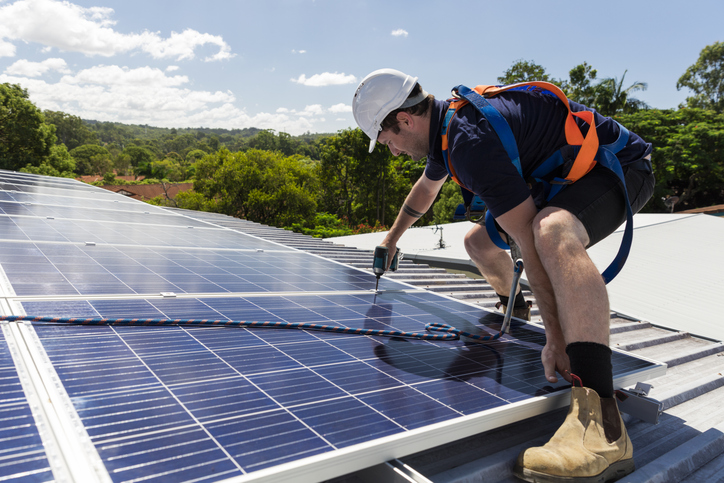
With rising energy costs and increasing pressure to meet sustainability goals, solar photovoltaic (PV) panel installations have become an attractive option for commercial properties. For both landlords and tenants, the benefits include long-term cost savings, improved ESG credentials, and enhanced marketability. However, the legal and practical considerations can be complicated.
1. Ownership and Installation Rights of Solar Panels
Who owns the solar panels – landlord, tenant, or a third-party provider?
- Landlords may wish to retain ownership and manage installation as a capital investment that enhances the property.
- Tenants, particularly those with long leases, may propose to fund and install the panels themselves.
- Third-party providers may offer “rent-a-roof” or power purchase agreements (PPAs), requiring separate agreements.
Whichever route is taken, the lease must clearly allocate installation rights, including access to the roof, structural alterations, and long-term maintenance responsibilities.
2. Reviewing the Lease and Title Before Installing Solar Panels
Before installation of solar panels by the Tenant, both parties should:
- Review the lease terms to determine if the tenant has:
- the right to carry out alterations or install solar panels,
- a right to underlet the roof space to a third party provider.
- Ensure the landlord’s consent is documented where required.
- Check the title and any restrictive covenants, particularly in multi-let or listed buildings, that could prevent solar installations.
Before installation of solar panels by the Landlord, the following should be considered:
- Should the roof/air space be reserved on future lettings of the property.
- If there’s a tenant in situ, the tenant’s consent will need to be obtained to access the property and their lease will possibly need to be varied to exclude the airspace from their demise and allow the landlord to access the roof to check the panels.
For multi-tenanted buildings, shared roof space may require co-operation between tenants, or adjustments to the building’s service charge regime.
3. Planning Permission and Building Regulations for Solar Panel Installations
While many solar PV installations qualify as permitted development, exceptions apply:
- Larger commercial arrays may require full planning consent.
- Properties in conservation areas, listed buildings, or within certain proximity to airports may face additional restrictions.
- Installations must also comply with building regulations, particularly regarding roof load, fire safety, and electrical standards.
Both parties should seek expert legal advice before proceeding.
4. Grid Connection and Energy Supply Agreements for Solar Panel Arrays
Connecting a commercial solar array to the grid requires:
- Approval from the District Network Operator (DNO).
- A clear understanding of who benefits from the electricity generated – landlord, tenant, or both.
- If surplus energy is exported, parties should determine who receives the income from the Smart Export Guarantee (SEG) scheme (if applicable).
A power purchase agreement (PPA) may be required if the landlord sells solar-generated electricity to the tenant.
5. Maintenance, Insurance, and End-of-Term Considerations for Solar Panels
Solar panels typically have a lifespan of 20–25 years. Agreements should address:
- Ongoing maintenance – who is responsible, and at whose cost?
- Insurance – who insures the panels and against what risks?
- Dilapidations and reinstatement – what happens at lease expiry? Will panels be removed or transferred? Should the landlord purchase the panels at a written down cost?
- Will the panels have a product guarantee?
There are many other points which should be considered and properly documented . . . . . this is just the start!
Solar PV installations offer real benefits, but it’s important that landlords and tenants seek legal advice to ensure that installation rights, responsibilities, and long-term obligations are clearly agreed and documented.
For further advice on renewable energy installations or lease negotiations, please contact our Renewable Energy team on 0116 289 7000 or email info@bhwsolicitors.com.
Categorised in: Commercial Property, News, Renewables
Tags: Commercial Property, Landlord and Tenant, Renewables